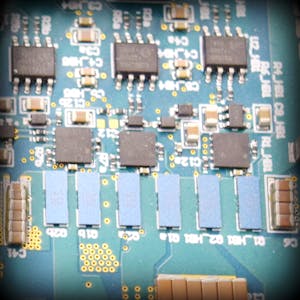Computer Architecture
In the rapidly evolving world of technology, understanding computer architecture is crucial for anyone aspiring to work in computer science, engineering, or related fields. Coursera’s course, "Computer Architecture", offered by Princeton University, provides an in-depth exploration of the foundational principles and advanced concepts of computer architecture. Whether you're a student, a professional, or an enthusiast, this course is designed to equip you with the knowledge and skills necessary to excel in the field.
Course Overview
The "Computer Architecture" course on Coursera dives deep into the structural design of computer systems. It covers a wide range of topics, from the basic principles of computer architecture to advanced topics like parallel processing and memory hierarchy. The course is structured to build a solid understanding of how computer systems are designed and how they operate.
What You’ll Learn
Throughout the course, learners will explore various critical aspects of computer architecture, including:
Fundamentals of Computer Architecture: Learn about the basic components of computer systems, including the CPU, memory, and I/O systems.
Instruction Set Architecture (ISA): Understand the interface between hardware and software, and how instructions are executed within a CPU.
Pipeline Processing: Gain insights into how modern CPUs improve performance through techniques like pipelining, which allows multiple instructions to be processed simultaneously.
Memory Hierarchy: Explore the different levels of memory, including caches, main memory, and secondary storage, and understand how they impact system performance.
Parallelism and Multicore Processors: Discover the concepts of parallel processing and how multicore processors are designed to handle multiple tasks efficiently.
Course Structure
The course is divided into several comprehensive modules, each focusing on a different aspect of computer architecture. Here’s a brief overview of the modules:
Introduction to Computer Architecture: An overview of the course content and the importance of computer architecture in modern computing.
Instruction Set Architecture: Detailed examination of how instructions are represented and executed in a computer system.
Microarchitecture: Study the internal organization of the CPU and how it implements the ISA.
Memory Systems: Explore the design and functioning of various memory systems and their impact on overall performance.
Advanced Topics: Delve into advanced concepts such as pipelining, parallelism, and multicore processors.
Learning Experience
The course is designed to be interactive and engaging, with a mix of video lectures, hands-on exercises, quizzes, and projects. Learners will benefit from:
- Expert Instruction: The course is taught by Professor David Wentzlaff from Princeton University, ensuring high-quality content and practical insights.
- Interactive Quizzes: Regular quizzes help reinforce learning and ensure a solid understanding of key concepts.
- Hands-On Projects: Practical projects provide an opportunity to apply the knowledge gained and develop real-world skills.
- Community Support: A community forum allows learners to interact, share knowledge, and seek help from peers and instructors.
Who Should Enroll?
This course is ideal for:
- Students and Beginners: Individuals with a basic understanding of computer science who want to deepen their knowledge of computer architecture.
- Aspiring Engineers: Students pursuing engineering degrees who want to strengthen their understanding of how computer systems are designed and operate.
- Professionals in Related Fields: Professionals in computer science, electronics, and related fields who need to understand computer architecture for their work.
- Technology Enthusiasts: Individuals passionate about technology who want to gain a deeper understanding of the inner workings of computer systems.
Why Choose This Course?
Choosing the "Computer Architecture" course on Coursera comes with several advantages:
- Accessibility: The course is available online, making it accessible to learners worldwide.
- Flexibility: Learners can go through the material at their own pace, fitting their studies around other commitments.
- Certification: Upon completion, learners receive a certificate from Coursera, endorsed by Princeton University, which can be a valuable addition to their professional credentials.
- High-Quality Content: Backed by Princeton University, a leader in education and research, the course ensures top-notch educational content.
Conclusion
Understanding computer architecture is fundamental for anyone looking to excel in the fields of computer science and engineering. Coursera's "Computer Architecture" course offers a thorough and accessible entry point into this complex and essential subject. Whether you're a student, professional, or enthusiast, this course provides the knowledge and skills needed to master the principles of computer architecture, paving the way for future learning and innovation.
Enroll in the course today and take the first step towards mastering the technology that powers our world.

























No comments